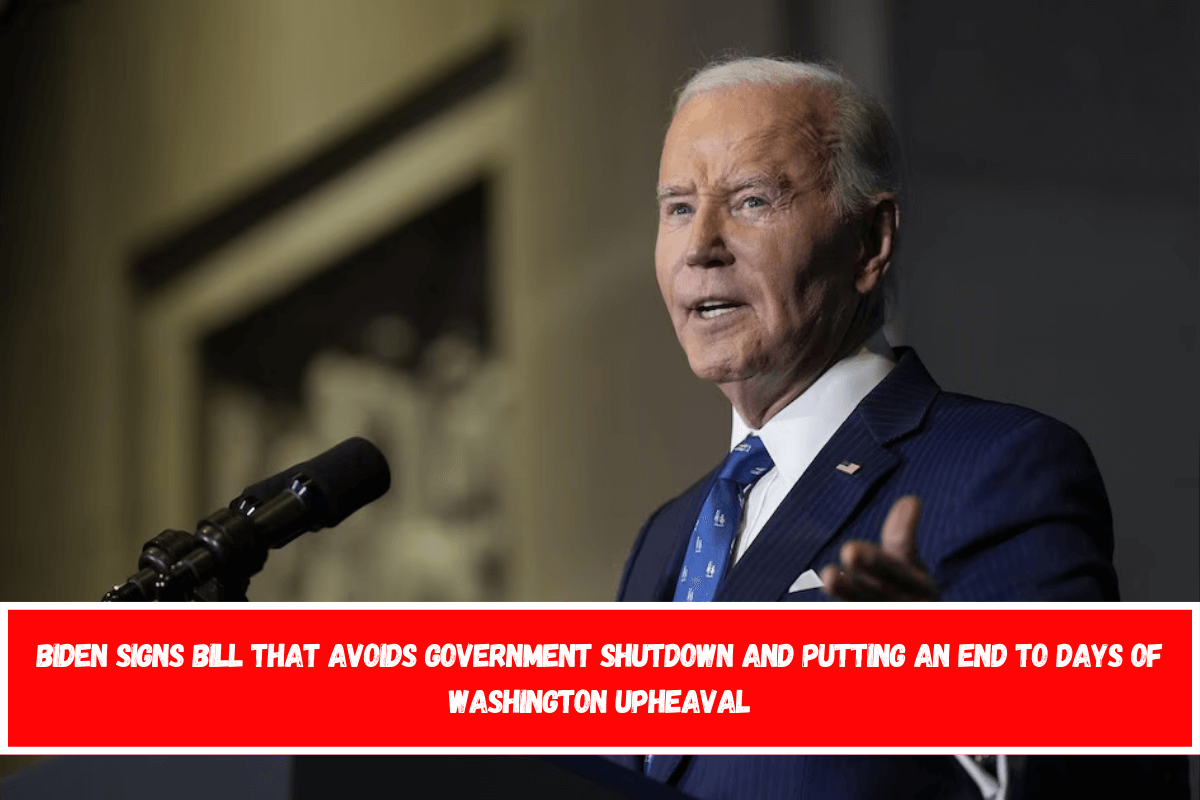President Joe Biden signed a bill into law Saturday that averts a government shutdown, bringing an end to days of turmoil after Congress approved a temporary funding plan just past the deadline and refused President-elect Donald Trump’s core debt demands in the package.
The agreement funds the government at current levels until March 14 and provides $100 billion in disaster aid and $10 billion in agricultural assistance for farmers.
House Speaker Mike Johnson, R-La., insisted that lawmakers would “meet our obligations” and prevent federal operations from closing.
However, the outcome at the end of a tumultuous week was uncertain because Trump insisted that the deal include an increase in the government’s borrowing limit. If not, he said, the closures should “start now.”
Johnson’s revised plan was approved 366-34, and the Senate voted 85-11 after midnight. By then, the White House had announced that shutdown preparations had ended.
“There will be no government shutdown,” stated Senate Majority Leader Chuck Schumer, D-New York.
Johnson, who spoke with Trump after the House vote, said the compromise was “a good outcome for the country” and that the president-elect “was certainly happy about this outcome, as well.”
The end result was Johnson’s third attempt to meet one of the federal government’s most basic requirements: keeping it open.
The difficulties raised concerns about Johnson’s ability to keep his job in the face of angry Republican colleagues while also working with Trump and his billionaire ally Elon Musk, who was calling legislative plays from afar.
The House will elect the next speaker on January 3, 2025, when the new Congress meets. Republicans will have an extremely narrow majority, 220-215, giving Johnson little room for error as he seeks the speaker’s gavel.
One House Republican, Rep. Andy Harris of Maryland, criticized Republicans for the bill’s deficit spending and stated that he was now “undecided” about GOP leadership. Others are expressing displeasure with Johnson as well.
However, Trump’s last-minute demand for a debt limit was nearly impossible to meet, leaving Johnson with little choice but to work around it.
The speaker knew there wouldn’t be enough support within the slim Republican majority to pass any funding package because many Republican deficit hawks want to cut the federal government and avoid more debt.
Instead, the Republicans, who will have complete control of the White House, House, and Senate in the coming year, with big plans for tax cuts and other priorities, are demonstrating that they must routinely rely on Democrats for the votes needed to keep up with the routine operations of government.
The federal debt is approximately $36 trillion, and the spike in inflation following the coronavirus pandemic has increased the government’s borrowing costs to the point where debt service will exceed spending on national security next year.
The last time lawmakers raised the debt limit was in June 2023. Rather than raising the debt limit by a dollar amount, lawmakers suspended it until January 1, 2025.
There is no need to raise that limit right now because the Treasury Department can begin implementing “extraordinary measures” to prevent America from defaulting on its debts.
Some estimate that these accounting maneuvers will push the default deadline to the summer of 2025. But that was something Trump wanted to avoid because an increase would be required while he was president.
GOP leaders stated that the debt ceiling would be debated as part of the new year’s tax and border packages. Republicans reached a so-called handshake agreement at the time to raise the debt limit while also reducing spending by $2.5 trillion over ten years.
It was essentially the same agreement that failed Thursday night, minus Trump’s debt demand. However, it is significantly smaller than Johnson’s original agreement with Democratic and Republican leaders — a 1,500-page bill that Trump and Musk rejected, forcing him to start over.
It was stuffed with a long list of other bills, including much-debated pay raises for lawmakers, as well as other measures with broad bipartisan support that now face a more difficult path to passage.
Trump, who has not yet been sworn into office, is demonstrating both his power and the limits of his influence in Congress as he intervenes and orchestrates affairs from Mar-a-Lago alongside Musk, who is in charge of the new Department of Government Efficiency.











Leave a Reply